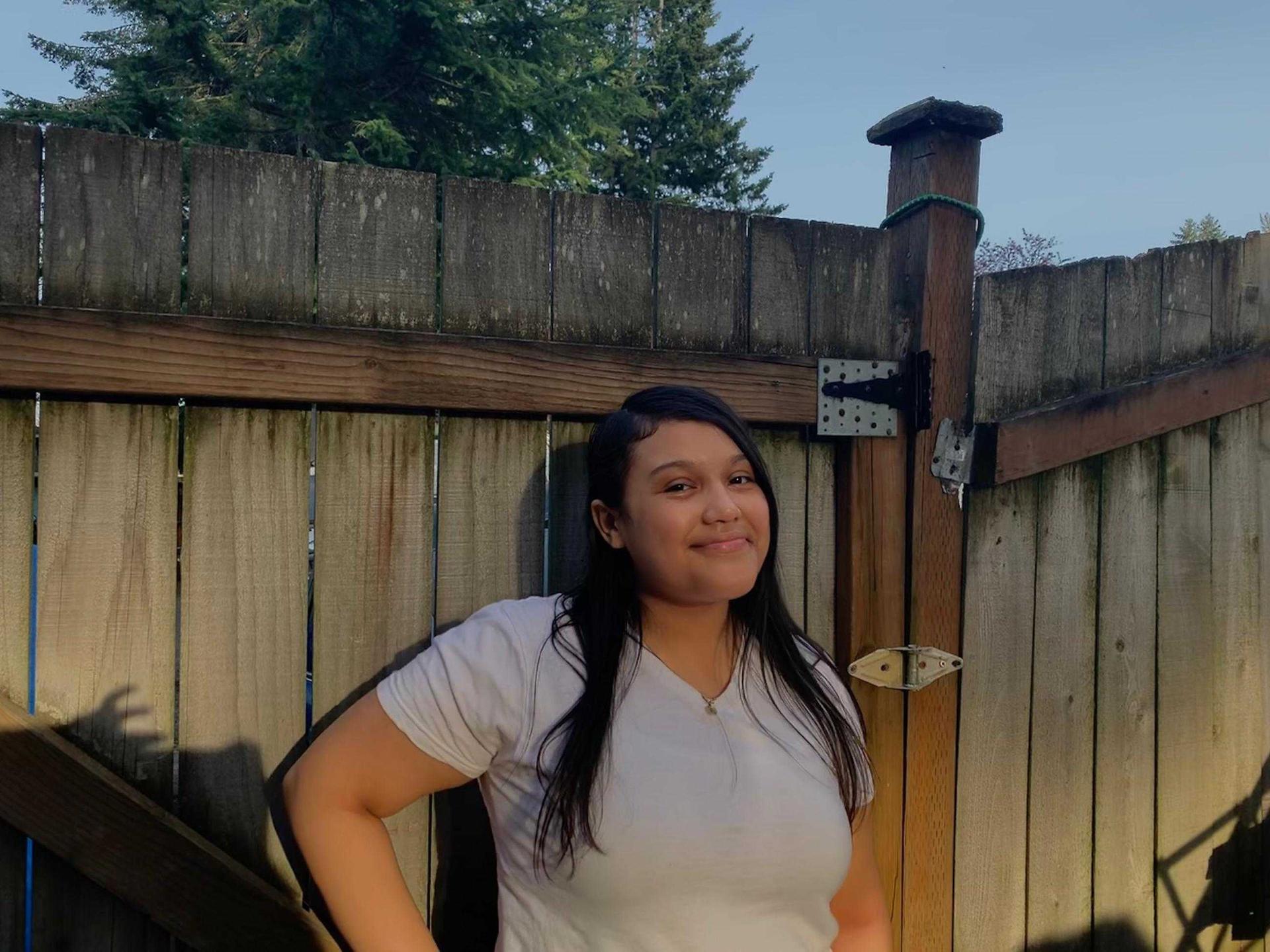Pandemic stress overshadows US election for this young Latina voter
Michelle Aguilar Ramirez, 17, is a a young Latina in Washington state who will vote for the first time in November.
This story is part of “Every 30 Seconds,” a collaborative public media reporting project tracing the young Latino electorate leading up to the 2020 presidential election and beyond.
The “new normal” is uncomfortable for Michelle Aguilar Ramirez, and countless other young people who are self-isolating because of the coronavirus pandemic. She’s a 17-year old Guatemalan American high school junior in Kent, Washington.
Washington state was initially the epicenter of the coronavirus outbreak in the US. Now, as cases have declined, officials are moving toward reopening certain areas of the state.
Related: How a trip to Honduras shaped one young US Afro Latino voter’s identity
For Aguilar Ramirez, the last two months of the stay-at-home orders have been slow and challenging.
“Staying in quarantine has really messed with my mental health,” she said. “I haven’t had the opportunity to socialize with other individuals except for the people I live with. I haven’t had the opportunity to really feel happy, in a way.”
The distractions of spending all her waking hours in a crowded house while adjusting to taking her classes online have kept Aguilar Ramirez from staying up-to-date with the presidential election in November. It will be the first time she will be eligible to vote.
Related: Coronavirus upended her family. But this Latina teen is determined to make her vote count.
“I’m not keeping myself posted with all the news that’s coming out, whether it’s political, or whether it’s about the elections. Because it’s just draining and overwhelming.”
“I’m not keeping myself posted with all the news that’s coming out, whether it’s political, or whether it’s about the elections,” she said. “Because it’s just draining and overwhelming.”
She’s not the only one that feels that way. Attention to the US election has waned — and with good reason. For now, young people like Aguilar Ramirez are worried about more immediate and pressing concerns such as making rent, their health and what their futures hold.
“I’ll probably start keeping myself posted on certain [news], but as of now, I could care less about that because I’m just busy with my own things with my mental health, my physical health and with academics,” she said. “I know that’s bad on my behalf. But that’s the best that I can do.”
Related: This Latino teen voter worries about prom, graduation — and the economy
While in quarantine, she has continued to take Running Start college courses and her high school classes online.
“I honestly truly hate it,” she said of her virtual classroom. “I don’t know how much I can express how much I hate digital learning.”
Her internet connection at home isn’t strong, so she struggles to connect with her professors or classmates over Zoom, the videoconferencing app. It’s also hard to keep track of her work deadlines.
Every day feels eerily the same since she’s been isolating. And when it’s not the Wi-Fi going down, it’s distractions from her family.
“I don’t have a specific space where I can do my homework at peace with no noise whatsoever,” Aguilar Ramirez said. She lives with eight other people at home — including extended family.
“Anytime in the day everyone is watching TV, there’s an Xbox, there’s like YouTube going on on the tablet or Fortnite,” she said. “So much noise!”
To listen to the full story, click the play button in the audio player above.
